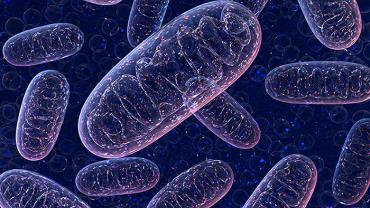
Recovering from severe illness, particularly after a hospital stay in the intensive care unit (ICU), may take months or even years, which may result in a higher risk of developing another severe illness in the future. An ICU stay may also lead to lingering motor and sensory neurological deficits and long-term symptoms such as muscle weakness, reduced exercise capacity, impaired pulmonary function, and mental health problems; these long-term symptoms are referred to as post-intensive care syndrome.
One reason for the lingering symptoms may stem from impaired mitochondrial function. Many ICU patients, especially those who develop sepsis, experience reduced adenosine triphosphate (ATP) production, known as bioenergetic dysfunction or failure. One study showed ICU patients producing about half the ATP as healthy controls. Thus, targeting the mitochondria may help with recovery and improve muscle function and other symptoms.
The key nutrients for mitochondrial function include the B vitamins, vitamin C, vitamin E, selenium, zinc, and CoQ10. Additional components aiding in mitochondrial health are melatonin, carnitine, taurine, lipoic acids, nitrate, and resveratrol. These nutrients and compounds have a wide range of roles, inclusive of cofactors in the tricarboxylic acid cycle (TCA) cycle, antioxidant activities, beta-oxidation roles, mitochondrial biogenesis stimulators, or the roles in electron acceptors in the mitochondrial complexes.
Fueling the mitochondria with these supportive nutrients may improve mitochondrial function and thereby support recovery from critical illness. One study on mitochondrial disorders found benefits from a combined supplement of creatine, CoQ10, and lipoic acid. Another study found that combined supplementation with CoQ10, carnitine, vitamin B complex, vitamin C, and vitamin K1 improved ATP synthesis in patients with mitochondrial disorders. Although neither of these studies looked directly at critically ill patients, they did demonstrate that dedicated nutrients can improve mitochondrial function and energy production. This may also help those with severe illness.
Studies have found lower levels of many of the critical mitochondrial nutrients in ICU patients and those recovering from severe illness, including the B vitamins (especially thiamine), vitamin C, selenium, zinc, CoQ10, melatonin, and carnitine. These studies have not directly assessed whether treating these deficiencies through supplementation or nutrition therapy, especially multiple ones, will improve recovery. However, it is possible that critically ill patients may experience a similar improvement to mitochondrial function through the support of mitochondrial health by repleting any deficiencies in the nutrients necessary for mitochondrial function.
Although the research may not elucidate the complete answers yet, the evidence demonstrates a potential role in mitochondrial health in recovery from severe illness. Finding ways through diet and supplementary support to ensure the mitochondria have sufficient capacity to function optimally may also support recovery from severe illness.
By Kendra Whitmire, MS, CNS